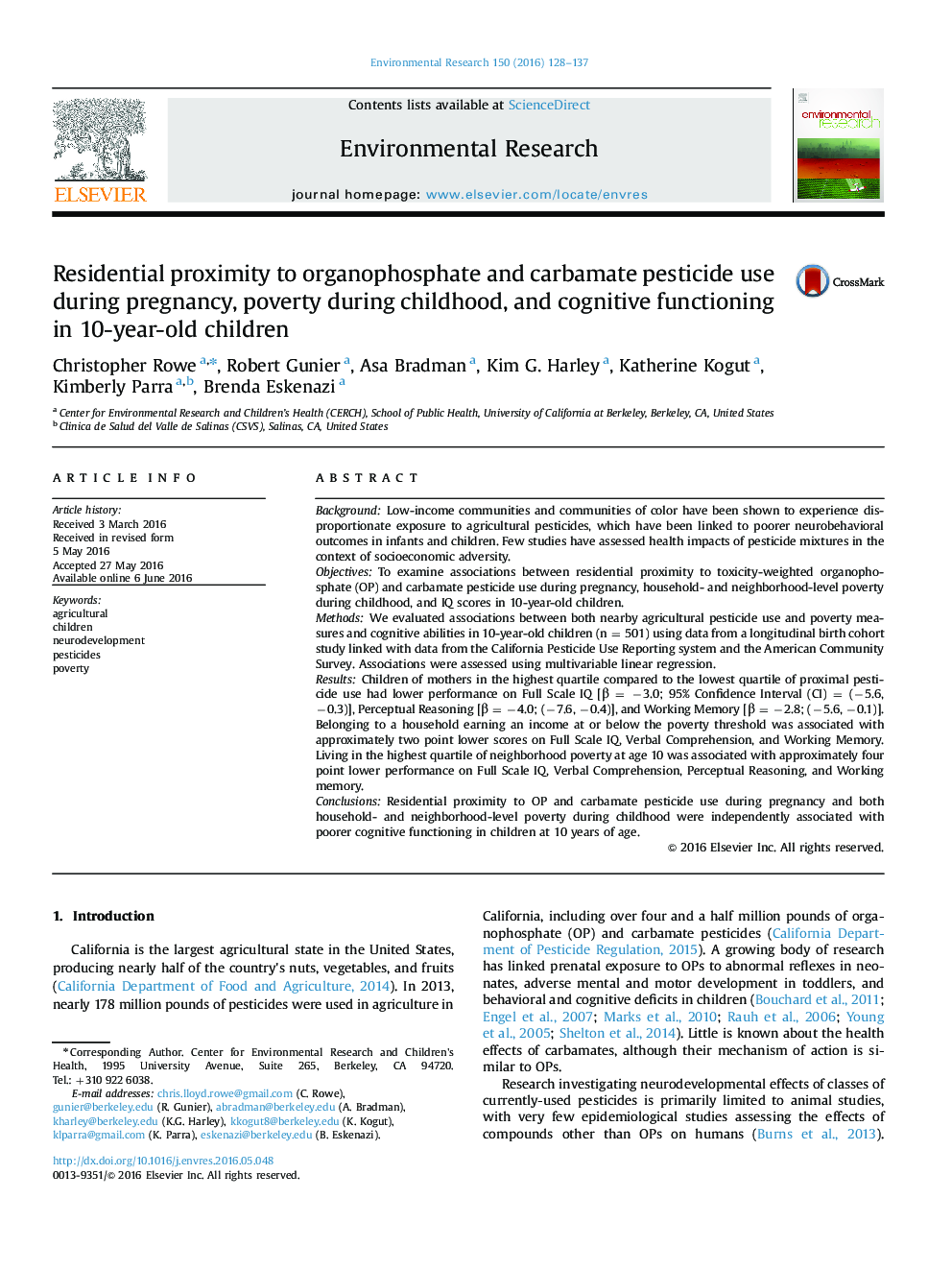| کد مقاله | کد نشریه | سال انتشار | مقاله انگلیسی | نسخه تمام متن |
|---|---|---|---|---|
| 6350994 | 1622553 | 2016 | 10 صفحه PDF | دانلود رایگان |
- Prenatal proximity to OP/carbamate pesticide use is linked to lower childhood IQ
- Neighborhood & household poverty during childhood are linked to lower childhood IQ
- Cognitive effects of proximal OP/carbamate pesticide use & poverty are independent
BackgroundLow-income communities and communities of color have been shown to experience disproportionate exposure to agricultural pesticides, which have been linked to poorer neurobehavioral outcomes in infants and children. Few studies have assessed health impacts of pesticide mixtures in the context of socioeconomic adversity.ObjectivesTo examine associations between residential proximity to toxicity-weighted organophosphate (OP) and carbamate pesticide use during pregnancy, household- and neighborhood-level poverty during childhood, and IQ scores in 10-year-old children.MethodsWe evaluated associations between both nearby agricultural pesticide use and poverty measures and cognitive abilities in 10-year-old children (n = 501) using data from a longitudinal birth cohort study linked with data from the California Pesticide Use Reporting system and the American Community Survey. Associations were assessed using multivariable linear regression.ResultsChildren of mothers in the highest quartile compared to the lowest quartile of proximal pesticide use had lower performance on Full Scale IQ [β = â3.0; 95% Confidence Interval (CI) = (â5.6, â0.3)], Perceptual Reasoning [β = â4.0; (â7.6, â0.4)], and Working Memory [β = â2.8; (â5.6, â0.1)]. Belonging to a household earning an income at or below the poverty threshold was associated with approximately two point lower scores on Full Scale IQ, Verbal Comprehension, and Working Memory. Living in the highest quartile of neighborhood poverty at age 10 was associated with approximately four point lower performance on Full Scale IQ, Verbal Comprehension, Perceptual Reasoning, and Working memory.ConclusionsResidential proximity to OP and carbamate pesticide use during pregnancy and both household- and neighborhood-level poverty during childhood were independently associated with poorer cognitive functioning in children at 10 years of age.
Journal: Environmental Research - Volume 150, October 2016, Pages 128-137
